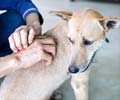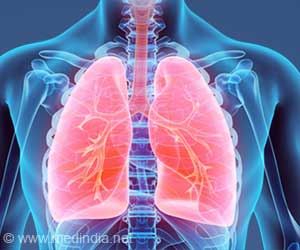Tragically, a teenager in Ghaziabad, UP, succumbed to rabies after a dog bite; emphasizes immediate vaccination as a crucial defense.
- A teenager in Ghaziabad, Uttar Pradesh, tragically died from rabies after concealing a dog bite, highlighting the importance of immediate medical attention in such cases
- Pre-exposure prophylaxis (PrEP) for rabies is recommended for individuals at higher risk of exposure, especially children
- Post-exposure rabies vaccination is crucial for anyone bitten or scratched by a potentially rabid animal, and it should be administered promptly to prevent any fatality
Rabies: A Silent Threat That Demands Urgent Action
Nonetheless, experts stress that immediate immunization through vaccination is the sole effective defense against rabies, a condition that leads to a harrowing fatality."Immunization is the only reliable safeguard against rabies, given its 100 percent fatality rate. Individuals should promptly seek vaccination after being bitten by such an animal," clarified Dr. Amit, the nodal officer for zoonotic diseases in Gautam Buddh Nagar.
In the wake of this event, the Ghaziabad Police have filed FIRs against individuals accused of feeding stray dogs, including the one suspected of carrying rabies and having bitten the boy.
"It is the duty of those who feed dogs to ensure that all strays in their vicinity receive proper vaccinations. An aggressive and rabid dog poses a threat to the entire community of dogs within the area, making it crucial to relocate such animals. A single incident like this can turn many people against innocent dogs," emphasized Kaveri Rana Bhardwaj, founder of SMART Sanctuary.
When to get Rabies Vaccine?
Pre-exposure prophylaxis (PrEP) for rabies involves administering a series of rabies vaccinations to individuals at higher risk of exposure to the virus, such as veterinarians, laboratory workers, or travelers to regions with high rabies prevalence.This precautionary measure helps prime the immune system to produce antibodies against the rabies virus, providing faster and more effective protection if a person is later exposed.
Veterinarians and Veterinary Staff:
Due to their frequent interaction with animals, especially wildlife and potentially rabid pets
Animal Handlers and Wildlife Workers:
People who work closely with animals in various settings, such as zoos, wildlife rehabilitation centers, and animal controlLaboratory Workers:
Those handling specimens that may contain the rabies virus, including researchers and technicians in labs studying rabiesTravelers to High-Risk Areas:
Individuals planning extended stays or engaging in activities that may increase their risk of animal bites or scratches in regions with high rabies prevalence and limited access to medical careCavers and Spelunkers:
Those involved in activities that may lead to encounters with bats, which are a known rabies reservoirCertain Outdoor Enthusiasts:
This may include campers, hikers, and individuals engaged in activities where contact with wildlife is more likelyRabies Response Team Members:
People involved in emergency response, animal control, or wildlife management, who may need to handle potentially rabid animals
Even with PrEP, individuals should still seek prompt medical attention and post-exposure prophylaxis (PEP) if bitten or scratched by an animal suspected of carrying rabies. PrEP is a crucial precautionary step in safeguarding against this deadly disease.
People Bitten by Animals
: Anyone who has been bitten by an animal, especially if the animal is not domesticated, or its rabies vaccination status is unknown, should seek immediate medical attentionVeterinarians and Animal Handlers
: Those who work closely with animals, including veterinarians, animal control officers, and wildlife workers, are at higher risk of exposure and should receive the vaccineLaboratory Workers Handling Rabies Samples
: Professionals who handle samples or work with the rabies virus in a laboratory setting are recommended to receive post-exposure vaccinationTravelers to High-Risk Areas
: Individuals traveling to regions or countries where rabies is prevalent, especially if they plan on engaging in activities that may put them in close contact with animals, should consider post-exposure prophylaxisPeople with Compromised Immune Systems
: Those with weakened immune systems due to conditions like HIV/AIDS, certain cancers, or organ transplants may require rabies vaccination even for relatively low-risk exposuresChildren
: Due to their tendency to interact closely with animals and potentially fail to report a bite, children should be considered for post-exposure vaccination if there is a suspicion of exposure
Source-Medindia












